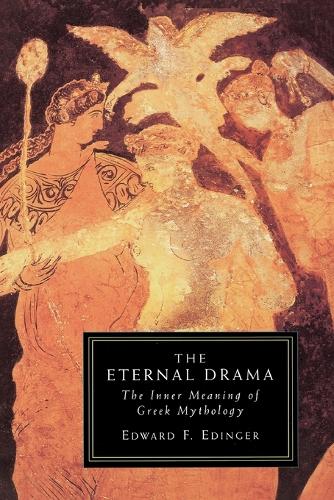
Eternal Drama: The Inner Meaning of Greek Mythology
(Paperback)
Publishing Details
Eternal Drama: The Inner Meaning of Greek Mythology
By (Author) Edward F. Edinger
Shambhala Publications Inc
Shambhala Publications Inc
15th February 2013
United States
Classifications
General
Non Fiction
Psychoanalytical and Freudian psychology
Analytical and Jungian psychology
292.13019
Physical Properties
Paperback
224
Width 152mm, Height 229mm, Spine 13mm
326g
Description
A Jungian exploration of the figures of Greek mythology, revealing what the stories and their continued significance represent about our modern lives Zeus, Aphrodite, Apollo, Artemis, Athena-do the gods and goddesses of Greece have anything to say to us that we haven't already heard In this book, based on a series of his lectures, the eminent Jungian analyst and writer Edward F. Edinger revisits all the major figures, myths, oracles, and legends of the ancient Greek religion to discover what they can still reveal-representing, as they do, one of the religious and mythic foundations of Western culture. Building on C. G. Jung's assertion that mythology is an expression of the deepest layers of mind and soul, Dr. Edinger follows the mythic images into their persistent manifestations in literature and on into our modern lives. He finds that the gods indeed continue to speak as we grow in our capacity to listen and that the myths express the inner energies within all of us as much as ever. Heracles is eternally performing his labors, Perseus is still confronting Medusa, Theseus is forever stalking the Minotaur, and Persephone is still being carried off to life in a new realm.
Reviews
"A compelling answer to fundamental questions about why and how we should read myths. . . . A book rich with fresh readings of well-known myths, buttressed by illuminating linkages between the Greek, Hebrew, and Christian roots of our modern psyche." Parabola
Author Bio
Edward F. Edinger, M.D., a founding member of the C. G. Jung Foundation for Analytical Psychology in New York, is the author of many books on Jungian psychology, including The Eternal Drama and Anatomy of the Psyche- Alchemical Symbolism in Psychotherapy.
